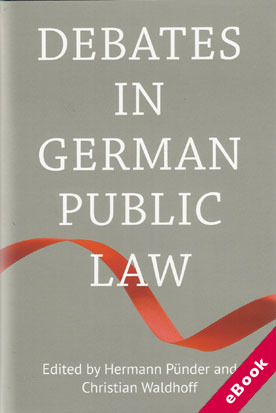We are now closed for the Christmas and New Year period, returning on Monday 5th January 2026. Orders placed during this time will be processed upon our return on 5th January.

The device(s) you use to access the eBook content must be authorized with an Adobe ID before you download the product otherwise it will fail to register correctly.
For further information see https://www.wildy.com/ebook-formats
Once the order is confirmed an automated e-mail will be sent to you to allow you to download the eBook.
All eBooks are supplied firm sale and cannot be returned. If you believe there is a fault with your eBook then contact us on ebooks@wildy.com and we will help in resolving the issue. This does not affect your statutory rights.
Germany's constitution the Basic Law of 23rd May 1949 - created a democratic constitution which, despite amendments, has held up over the years, even providing the legal basis for German reunification in 1990. When it was written the Basic Law was initially regarded as a temporary solution which would last until a pan-German constitution could be created, but over the years it has grown to become a mainstay of post-war stability and has even become one of Germany's most successful exports.
Foreign scholars are particularly interested in the German conception of fundamental rights and the mechanisms in place for enforcing them in the courts, as well as in Germany's federal structure. Making and applying administrative law and working alongside the system of EU law are also subjects of great interest.
This book, developed by a group of scholars in honour of the 60th anniversary of the Basic Law, presents examples of fundamental aspects of current scholarly debate. The analyses found in this book present the latest scholarly discussions, specifically for a foreign audience,touching upon constitutional law, administrative law and the place of the Federal Republic within the system of European Community law, with constitutional law providing the constant framework.